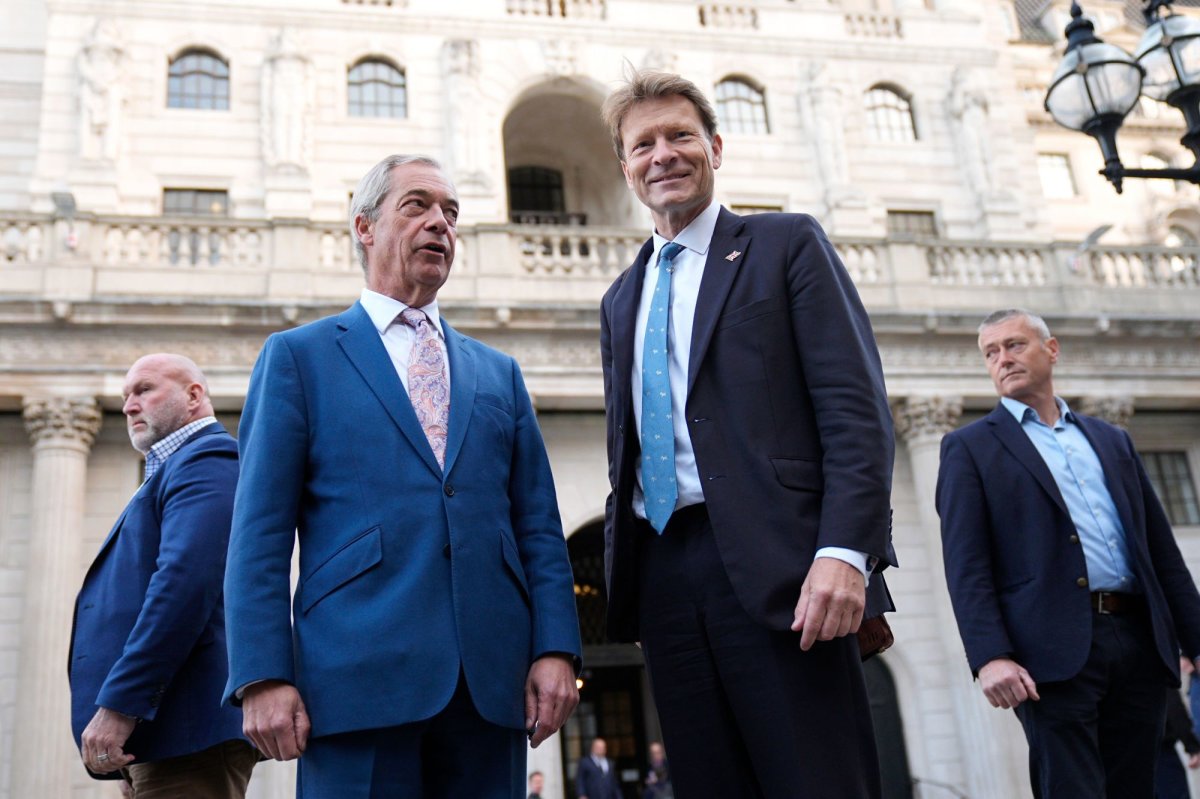
Nigel Farage and Richard Tice outside the Bank Of England | Alamy
4 min read
With the budget looming next month, Reform has a point to prove that they are the party voters can trust on the economy.
Consistently leading in the polls, Reform has come under intense scrutiny for promising sweeping tax cuts without providing details of how to pay for them. Their 2024 manifesto racked up £90 billion in tax cuts, inviting criticism from political opponents and economists that the party is fiscally irresponsible.
But senior Reform figures told PoliticsHome they have been “totally misrepresented” on the economy and are keen to reset the dial.
Reform leader Nigel Farage recently sought to distance himself from the party’s manifesto. In an attempt to rebuild their fiscal credibility, he announced a new fiscal rule: they will not cut taxes until they can reduce spending.
Last week Farage told The Times: “Reform will never borrow to spend, as Labour and the Tories have done for so long; instead, we will ensure savings are made before implementing tax cuts.”
“We’re essentially just reinforcing our credentials, reassuring those who may be worried”, deputy leader Richard Tice told PoliticsHome.
It was Farage, Tice and Zia Yusuf who were the key players in deciding this new economic rule in an effort to change the narrative that their economic policies are uncosted, PoliticsHome understands.
“What they are doing now is a lot more thought through, and they do a lot more number crunching in the background than they used to do,” a source close to the party told PoliticsHome.
The state of the country’s finances means that Reform must show where they are willing to make credible cuts. Earlier this week Tice was appointed as Reform’s new head of DOGE and will play a key part in the party’s renewed push to make savings.
PoliticsHome understands the party is preparing for a series of announcements in November on their new economic policy, intentionally timed with the lead-up to the budget on 26 November. This is the party’s latest policy campaign following their last one in the summer, which focused on law and order and immigration.
During the last campaign, former prison governor Vanessa Frake was announced as the party’s justice advisor and former police officer Colin Sutton as their new police and crime advisor.
When asked who is advising Reform on economic policy, Tice said: “These are successful business people, these are very senior corporate folk, they are economists, they are people at the head of think tanks.”
There has been increasing pressure on Reform to put forward a clear vision on the economy, as PoliticsHome reported last month.
Scarlett Maguire, pollster and founder of Merlin Strategy, told PoliticsHome: “One of the reasons that some Conservative voters are sticking with Badenoch rather than going to Farage is because they are unsure what Reform’s economic policy will look like.
“It’s not that the party needs a detailed economic platform at the moment, but it does need to indicate direction of travel and show voters that it has a credible economic team.”
In a recent interview with The House magazine, Farage acknowledged that bringing down debt levels is essential. “If we don’t, we’re done for,” he said. “Gilts will become junk bonds. If we don’t, we’ll become a third-world country in terms of relative prosperity.”
Last month Farage and Tice visited the Bank of England to meet with governor Andrew Bailey and called for the Bank of England to halt bond sales and cut the interest it pays to UK banks.
In Farage’s party conference leader’s speech, he said Reform would unleash huge welfare cuts if elected – but the party still supports ditching the two-child benefit cap, estimated to cost £3bn a year.
Responding to Reform’s new tax and spend policy, the shadow chancellor Mel Stride told PoliticsHome: “Reform have shown they can’t be trusted with Britain’s economy. Their election plans would have bankrupted the country and left us all paying the price.
“They talk tough but their policies are pure fantasy – more spending, more borrowing, and more debt. They’re marching to the left while pretending to be something else.
“Only the Conservatives will keep Britain’s finances secure and keep our economy strong.”

